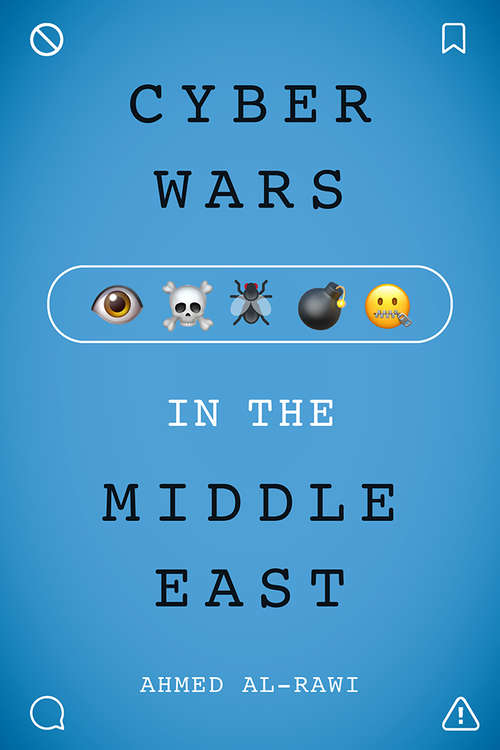Cyberwars in the Middle East (War Culture)
By:
Sign Up Now!
Already a Member? Log In
You must be logged into Bookshare to access this title.
Learn about membership options,
or view our freely available titles.
- Synopsis
- Cyberwars in the Middle East argues that hacking is a form of online political disruption whose influence flows vertically in two directions (top-bottom or bottom-up) or horizontally. These hacking activities are performed along three political dimensions: international, regional, and local. Author Ahmed Al-Rawi argues that political hacking is an aggressive and militant form of public communication employed by tech-savvy individuals, regardless of their affiliations, in order to influence politics and policies. Kenneth Waltz’s structural realism theory is linked to this argument as it provides a relevant framework to explain why nation-states employ cyber tools against each other. On the one hand, nation-states as well as their affiliated hacking groups like cyber warriors employ hacking as offensive and defensive tools in connection to the cyber activity or inactivity of other nation-states, such as the role of Russian Trolls disseminating disinformation on social media during the US 2016 presidential election. This is regarded as a horizontal flow of political disruption. Sometimes, nation-states, like the UAE, Saudi Arabia, and Bahrain, use hacking and surveillance tactics as a vertical flow (top-bottom) form of online political disruption by targeting their own citizens due to their oppositional or activists’ political views. On the other hand, regular hackers who are often politically independent practice a form of bottom-top political disruption to address issues related to the internal politics of their respective nation-states such as the case of a number of Iraqi, Saudi, and Algerian hackers. In some cases, other hackers target ordinary citizens to express opposition to their political or ideological views which is regarded as a horizontal form of online political disruption. This book is the first of its kind to shine a light on many ways that governments and hackers are perpetrating cyber attacks in the Middle East and beyond, and to show the ripple effect of these attacks.
- Copyright:
- 2021
Book Details
- Book Quality:
- Publisher Quality
- Book Size:
- 194 Pages
- ISBN-13:
- 9781978810129
- Related ISBNs:
- 9781978810112, 9781978810105
- Publisher:
- Rutgers University Press
- Date of Addition:
- 07/16/21
- Copyrighted By:
- Ahmed Al-Rawi
- Adult content:
- No
- Language:
- English
- Has Image Descriptions:
- No
- Categories:
- History, Military, Nonfiction, Computers and Internet, Politics and Government, Sociology
- Submitted By:
- Bookshare Staff
- Usage Restrictions:
- This is a copyrighted book.
Reviews
Other Books
- by Ahmed Al-Rawi
- in History
- in Military
- in Nonfiction
- in Computers and Internet
- in Politics and Government
- in Sociology
